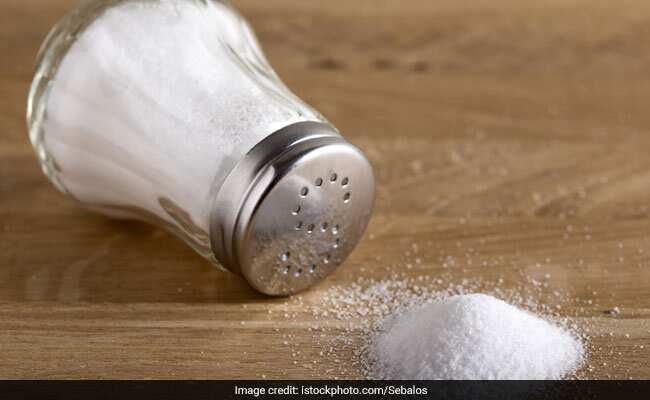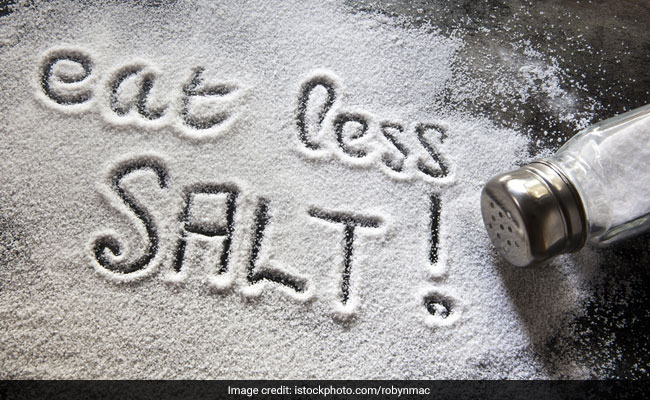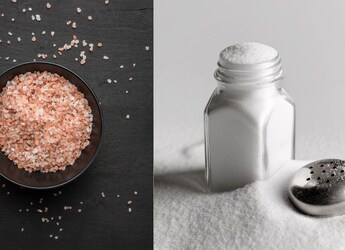Deficiency of sodium is rare, but it can occur in people after excessive vomiting or diarrhea or in athletes who consume excessive amounts of water, or in people whofast regularly on juice and water.

Foods that are high in sodium
HIGHLIGHTS
- A diet high in sodium can be harmful for your health.
- Processed meats, are high in sodium due to the salt and preservatives
- Sodium content tends to be quite high in canned soups, fruits and beans
Sodium is an essential nutrient required by the body for regulating blood pressure and thereby maintaining a healthy heart. Deficiency of sodium is rare, but it can occur in people after excessive vomiting or diarrhea or in athletes who drink excessive amounts of water, or in people who fast regularly on juice and water. On the other hand, over-consumption of sodium is far more common and can lead to high blood pressure which in turn leads to an increased risk of heart diseases. A diet high in sodium can be harmful for your health. According to the Harvard School of Public Health excess sodium increases your blood volume and along with it, the strain on your heart and blood vessels.

A diet high in sodium can be harmful for your health
Photo Credit: iStock
Also read: Cut Down Your Salt Intake By Using These Amazingly Healthy Salt Substitutes
1. Processed meat: Sausages, salamis and ham and other processed meats, are high in sodium due to the salt, preservatives and other flavor enhancers. A typical 3-ounce sausage has around 500 milligrams of sodium. That is a huge amount considering the average person should consume less than 2,300 milligrams per day. Therefore, it is advisable to avoid processed meat or consume occasionally.
2. Canned beans: Baked beans are an excellent source of fiber and protein, but most of the time they are also high in salt. One cup of canned baked beans has more than 1,000 milligrams of sodium. A cup of homemade baked beans has about the same, unless you prepare a low-salt recipe. You can rinse the canned beans before consumption in order to cut down the salt consumption.
Also read: Table Salt Or Sea Salt? What Is The Difference And Which Is Healthier?
3. Eggs yolks: After meat, eggs contain the highest amount of natural salt. One large egg has around 170 milligrams of sodium most of which is found in the yolk.
4. Vegetables: Although vegetables are considered to be healthy food choices, some vegetables like carrots, turnips, beet greens, spinach, chard, sweet potatoes contain some natural salt. Many fresh vegetables are low in sodium but when cooked a lot of added salt goes into the making. Hence, you should be careful while making the right choices.

Many fresh vegetables are low in sodium but when cooked a lot of added salt goes into the making.
Photo Credit: iStock
Also read: Pink Himalayan Salt - Does It Have Any Health Benefits?
Even if a food is naturally low in salt, a significant amount of sodium can be added during the cooking or packaging procedures. Sodium helps to enhance the flavor and preserve foods, which typically leads to a longer shelf life. Even 'reduced sodium' foods can still contain high quantities of sodium than you expect. Therefore, you should look at the nutrition facts label for sodium before buying. Sodium content tends to be quite high in canned soups, fruits, beans, vegetables, smoked and cured meats, bacon, olives, pickles, processed cheese, jarred or canned sauces, hot dogs, sauces and salad dressing.
Disclaimer: This content including advice provides generic information only. It is in no way a substitute for qualified medical opinion. Always consult a specialist or your own doctor for more information. NDTV does not claim responsibility for this information.
DoctorNDTV is the one stop site for all your health needs providing the most credible health information, health news and tips with expert advice on healthy living, diet plans, informative videos etc. You can get the most relevant and accurate info you need about health problems like diabetes, cancer, pregnancy, HIV and AIDS, weight loss and many other lifestyle diseases. We have a panel of over 350 experts who help us develop content by giving their valuable inputs and bringing to us the latest in the world of healthcare.














